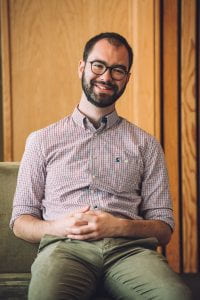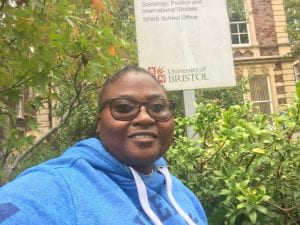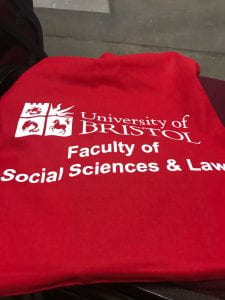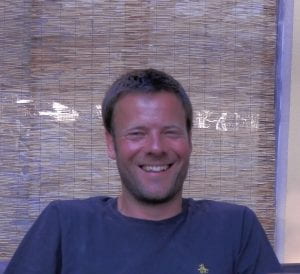The SU’s Chris talks to us about his full-time role and his work to develop postgraduate networks
“My PhD is now on hold for a year so I can work full-time to represent the 8000 postgraduates at the University of Bristol”
I first arrived in Bristol as an undergraduate to study Physics in 2012. After I graduated, I was fortunate enough to be offered a place to continue the research I had started in my final year as a PhD in Membrane Biophysics. Alongside that, in my first year, I was a course rep for my research group within the school, through which I got involved in activity around student representation at the Students’ Union. Then, earlier this year, I stood for election for my current job – Postgraduate Education Officer at Bristol SU. Having been elected into this role, my PhD is now on hold for a year so I can work full-time to represent the 8000 postgraduates at the University of Bristol.
The title of Postgraduate Education Officer can sound quite vague, so what does it mean in reality? In short, it means that I support the work done at the SU (a separate partner organisation to the university) whose vision is to support the best student life. I work on this through the lens of being a postgraduate student, and particularly around the educational experience side of things.
“Working with students and hearing about issues from new perspectives is definitely one of the most enjoyable and rewarding aspects of doing this job”
At a postgraduate level, educational experience is fairly all-encompassing, so really, I end up working on all sorts of issues, particularly around the academic support that postgraduates get once they get here. I work really closely with course reps to get a wide-ranging student perspective into what I report back to the university and campaign on. Working with students and hearing about issues from new perspectives is definitely one of the most enjoyable and rewarding aspects of doing this job, however tough and busy it can sometimes be.
“One of my focuses this year is to ensure that all networks are inclusive of postgraduates and their voices for their time at university and beyond”
I’m really keen to see more and more postgraduates – both taught and research – involved with what the SU does. Outside of direct educational issues, we run Networks, which are grassroots groups in our democracy for students to campaign on topics that matter especially to their identities and interests, ranging from BME to LGBT+ to Sustainability. Postgraduate students have traditionally stuck to their own dedicated network, but one of my focuses this year is to ensure that all networks are inclusive of postgraduates and their voices in these issues for their time at university and beyond. Overall, I’m really looking to use this year to shape what the postgraduate student experience looks like holistically – not just for current Bristol students, but for the students of the future as well.
If you’re a postgraduate student at University of Bristol, come down to the SU and say hello and see how you could get involved.
Written by Chris Brasnett, Postgraduate Education Officer, Bristol SU
To find out more about postgraduate study attend our Open Day on 20 November.





